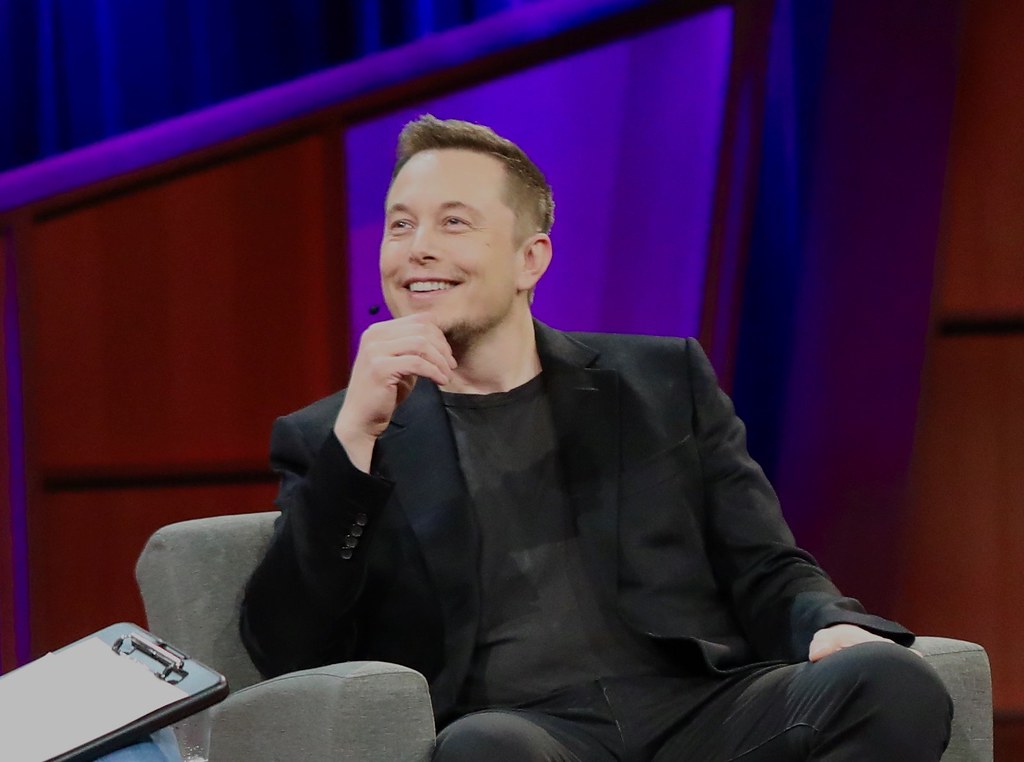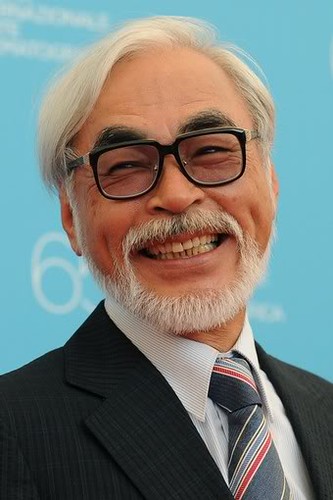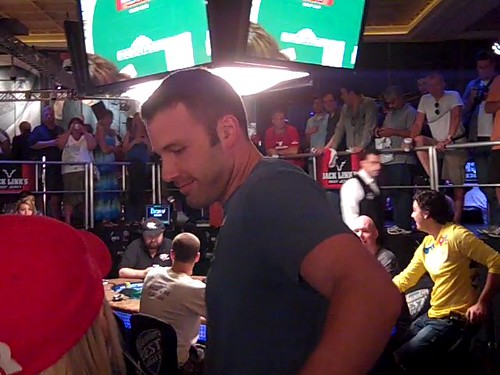
Navigating the world of celebrity can sometimes feel like walking a tightrope, where every single statement is meticulously scrutinized, and any slight misstep can resonate disastrously. When the cameras start rolling and the microphones go live, the stakes are immeasurably high for public figures. It’s a universe where one wrong word can truly trigger a full-blown career crisis.
Public figures constantly find themselves navigating a minefield of potential missteps, pressured to appear authentic while also remaining palatable to a vast and diverse audience. When these two powerful forces collide, the results can be absolutely devastating, leading to a public relations nightmare. Sometimes, a celebrity’s career can genuinely go down the drain after these intense, high-stakes interviews.
This article dives deep into 14 infamous interviews where stars undeniably stumbled, revealing the profound and often long-lasting consequences that can follow. We’ll explore how a few misplaced words, a moment of candor, or even an ill-conceived joke can completely derail years of hard work, offering a stark reminder of the relentless spotlight that accompanies fame.
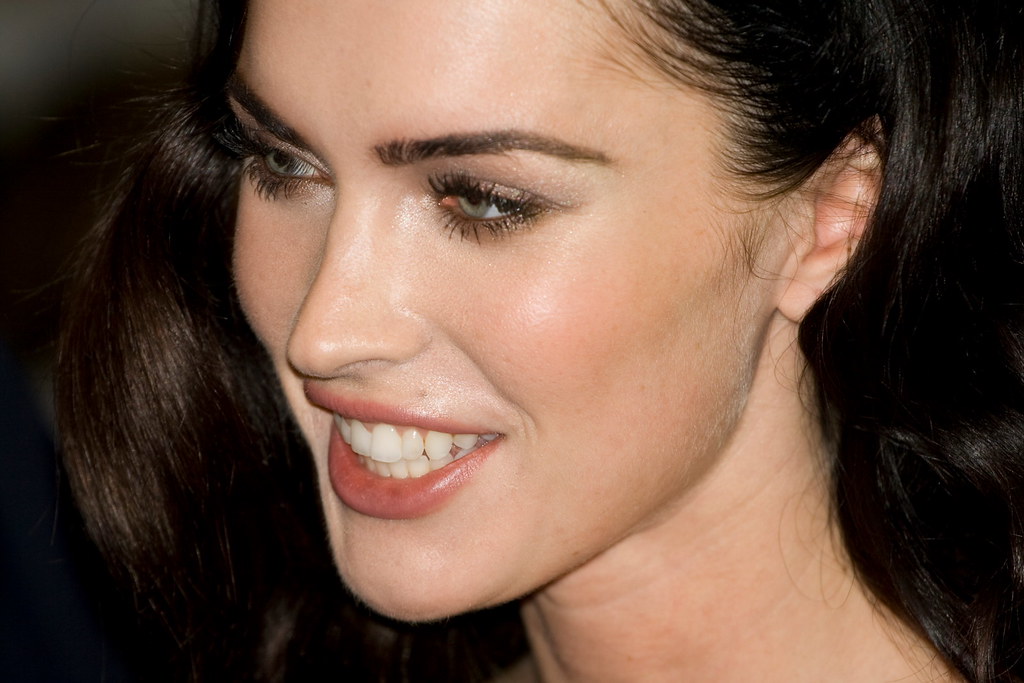
1. Megan Fox
In 2009, Megan Fox’s flourishing career took a really sharp downturn following an interview with British magazine Wonderland. During this chat, she made a controversial comparison that immediately grabbed headlines. Fox famously called her “Transformers” director, Michael Bay, “a cross between Napoleon and other world dictators,” further stating that he was a “nightmare to work with.”
Her comments, while perhaps intended to illustrate the intense nature of Bay’s directorial style, were widely perceived as incredibly harsh and deeply disrespectful. The interview shocked the public and immediately sparked significant repercussions within the highly sensitive entertainment industry. It was a moment that underscored just how quickly public perception can turn.
The fallout from Fox’s remarks was swift and severe. According to Bay himself, it was the franchise’s executive producer, Steven Spielberg—who happened to be Bay’s boss—who insisted she be fired. This ultimately resulted in her being dropped from the subsequent “Transformers: Dark Side of the Moon” film, significantly damaging her career and making it difficult for her to secure major roles.
It wasn’t until several years later, after issuing a public apology to Michael Bay and working with him again on the Teenage Mutant Ninja Turtle films, which he produced, that her career slowly began to recover. This situation remains a stark and powerful reminder of how a single, ill-judged interview can dramatically alter a celebrity’s career trajectory, highlighting the immense power of words in the public sphere.
Read more about: Behind the Scenes of Discontent: 14 Infamous Director-Actor Feuds That Rocked Hollywood
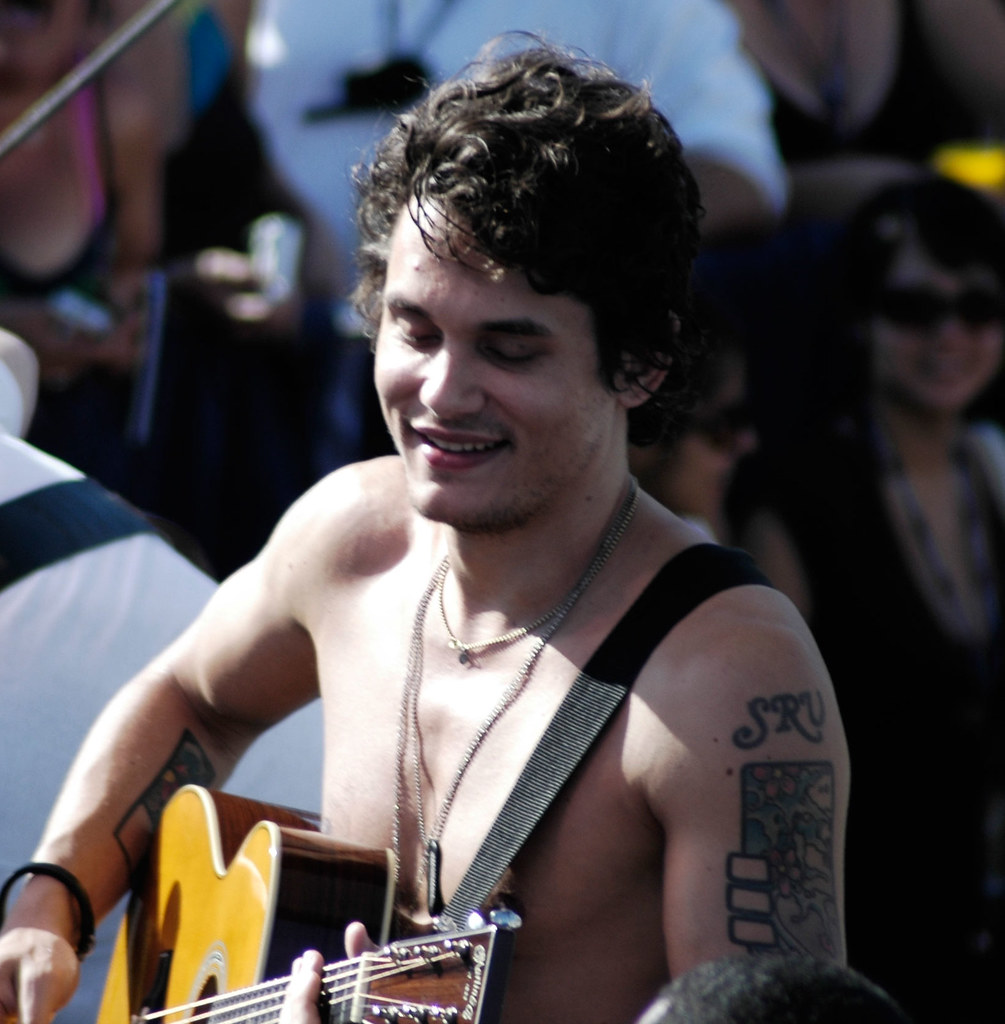
2. John Mayer
John Mayer, once celebrated as a quality musician seemingly destined for legendary status, completely disrupted his carefully cultivated sensitive-guy image in a 2010 interview with Playboy magazine. He certainly didn’t hold back, diving into explicit details about his personal life and ual preferences, which proved to be a critical misstep for his public persona.
His candidness quickly spiraled into controversy when he openly bragged about intimate moments with Jessica Simpson and Jennifer Aniston. Even more damaging, he admitted to preferring to date white women exclusively, sparking immediate outrage and widespread accusations of racial insensitivity. He even went so far as to refer to his body using a white supremacist reference and casually threw in racial slurs a couple of times.
The fallout from Mayer’s interview was undeniably severe, causing many fans and critics to distance themselves from the artist. While it didn’t completely end his music career, it significantly tarnished his public image and eroded a substantial portion of his loyal fan base. His mainstream popularity, which had once soared, never fully recovered.
Mayer apologized on social media, in other interviews, and even at his gigs, trying to mend the damage. However, the impact was lasting, as none of his released singles have managed to reach the top 25 on the US Billboard chart since 2010’s “Half of My Heart.” His experience serves as a clear cautionary tale about the dangers of oversharing personal and offensive information in the media, demonstrating how such revelations can powerfully backfire.
Read more about: Heather Mills at 56: Unveiling the Enduring Resilience and Red Carpet Glamour of Paul McCartney’s Ex-Wife
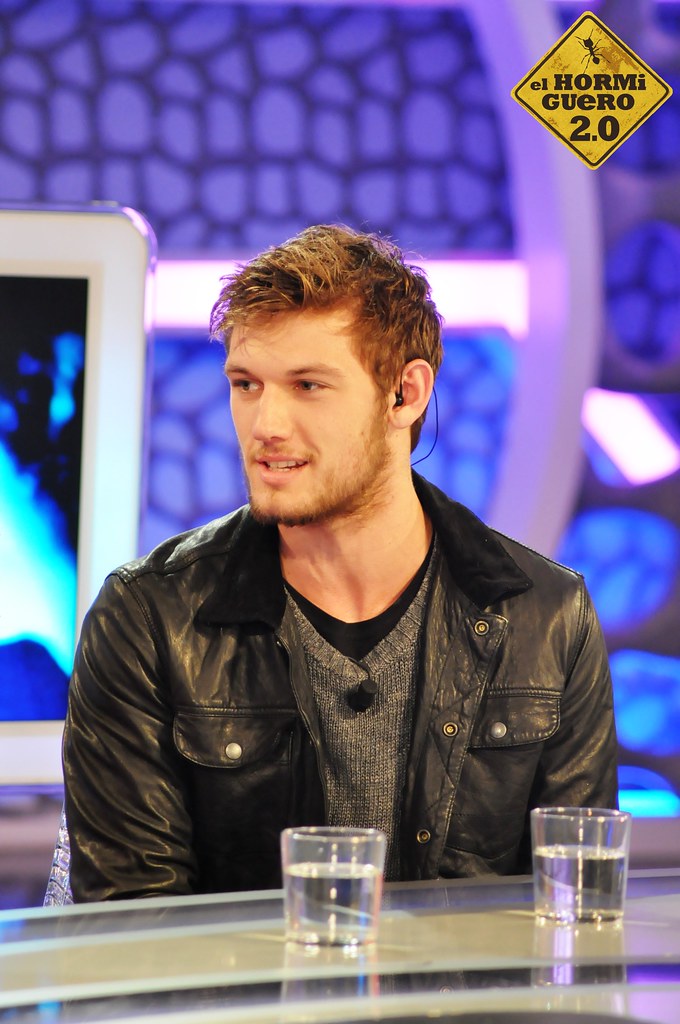
3. Alex Pettyfer
If you’re a blossoming actor trying to make your way in Hollywood, it’s generally not the best idea to publicly slam the very city where you earn your living. Yet, that’s exactly what England’s Alex Pettyfer did in a 2011 interview with VMan for an article. Having already made a name for himself in films like “I Am Number Four” and “Stormbreaker,” his career appeared to be on an upward trajectory.
However, in that expletive-filled interview, Pettyfer held absolutely nothing back in expressing his profound dislike for Los Angeles. He called the city “disgusting” and an “insidious pool,” stating that people there “lived in fear.” He also took several shots at Hollywood’s social scene, describing it as “disgusting” and equating an acting career to being in prison.
These scathing remarks, combined with a pre-existing reputation for being “difficult to work with,” severely hampered his career. Word was already out about his challenging off-screen attitude, but after this highly public outburst, casting offers began to slow to a trickle. Big-budget productions and directors started looking elsewhere for talent, causing Pettyfer’s career to stagnate significantly.
His experience perfectly illustrates how publicly disrespecting the industry’s hub and its people, especially when coupled with a difficult reputation, can swiftly close doors to future opportunities. Pettyfer’s career never quite regained its initial momentum, serving as a stark reminder of the importance of maintaining a professional and respectful public image, even when expressing personal opinions.
Read more about: Hollywood Hissy Fits: These Blockbuster Stars Had MAJOR On-Set Drama (And You Won’t Believe Who Was Involved!)
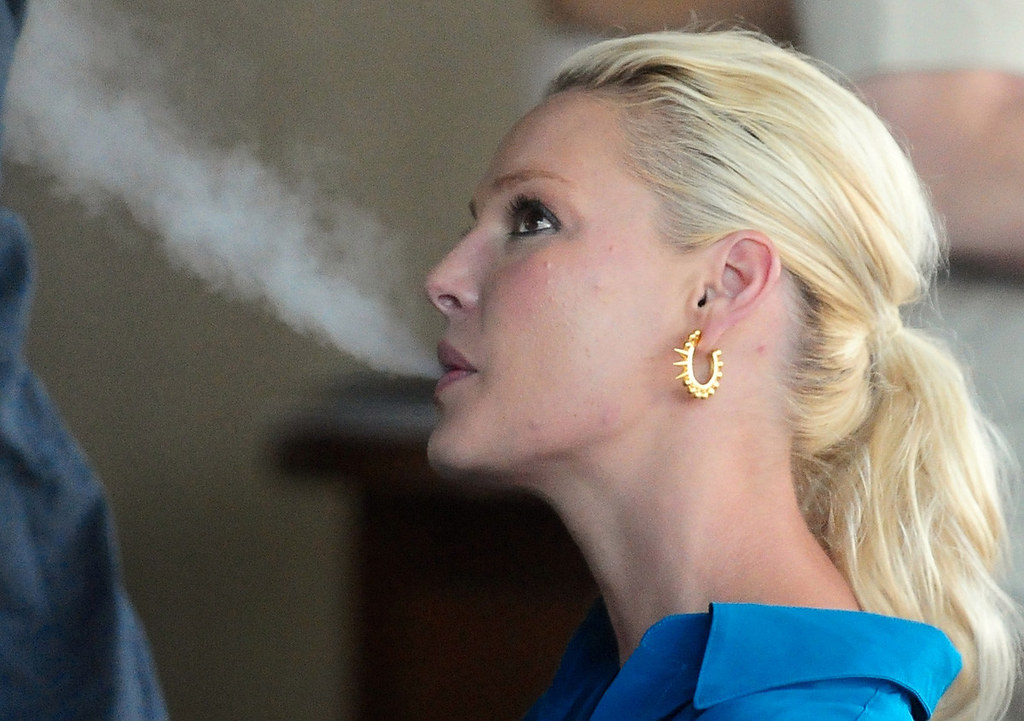
4. Katherine Heigl
Katherine Heigl was an undeniable star, becoming an early breakout in Shonda Rhimes’ wildly successful medical drama “Grey’s Anatomy.” She also starred in the 2007 Seth Rogen/Judd Apatow hit romantic comedy “Knocked Up,” and her star power and talent seemed destined to make her Hollywood’s new favorite big-screen leading lady. However, an interview about “Knocked Up” turned into another classic case of an actress biting the hand that feeds her.
During a 2008 interview with Vanity Fair, Heigl publicly criticized “Knocked Up,” calling it “a little ist.” She elaborated, stating, “It paints the women as shrews, as humorless and uptight, and it paints the men as lovable, goofy, fun-loving guys.” She admitted, “It exaggerated the characters, and I had a hard time with it, on some days… why is she being such a killjoy? Why is this how you’re portraying women?”
The backlash from her comments was immediate and profound. Seth Rogen and Judd Apatow, while known for fun, lighthearted comedies, are two of Hollywood’s biggest power players. Rogen, in particular, was deeply hurt by Heigl’s remarks. He later described his feelings in a 2016 interview, saying, “People seemed to like it. We were funny together. I was having a really good time, and then when I heard afterward that she didn’t like it, that she seemed to not like the process, and she did not like the end product either, I think when that happens – also your trust feels somewhat betrayed.”
Heigl’s career never managed to get back to its mid-2000s success. She was also famously tagged with the “difficult to work with” label after publicly withdrawing her name from Emmy Awards consideration for “Grey’s Anatomy.” Despite a few attempts at career rebounds, including starring in her own television series like “State of Affairs” and “Doubt,” both failed to last more than a single season, and her days as a rom-com headliner never returned.
Read more about: From Silver Screen to Sidelines: 11 Iconic Female Stars Who Faced Unexpected Blacklisting in Hollywood

5. Sarah Palin
Sometimes, all it takes is a seemingly simple question and a vague answer to create a monumental career misstep. Such was the case for Sarah Palin during her highly publicized 2008 interview with Katie Couric. As a vice-presidential hopeful, she faced intense scrutiny, and every word was under a microscope, making this particular exchange an enduring political gaffe.
Katie Couric posed what seemed like a straightforward question: “What newspapers do you read?” Palin’s response was notoriously vague and non-committal, offering up the ambiguous reply, “All of them.” This answer, instead of demonstrating intellectual breadth, unfortunately turned into late-night comedy gold.
Palin instantly became a national punchline overnight. The incident highlighted concerns about her readiness for the vice presidency and contributed significantly to a narrative of being ill-prepared. While it wasn’t the only reason her VP hopes sank fast, her performance in this interview certainly didn’t help her standing, becoming a memorable moment of political self-sabotage.
Her vague, almost flippant reply solidified a perception that she lacked specific knowledge or a deep engagement with current events, a critical requirement for such a high office. The interview became a viral sensation, a defining moment that demonstrated the immense power of media scrutiny in the political arena, illustrating how a single interview can truly shape public and political destiny.
Read more about: Unpacking the Versatile Legacy of Common: A Multi-Talented Icon’s Journey Through Hip-Hop, Hollywood, and Activism
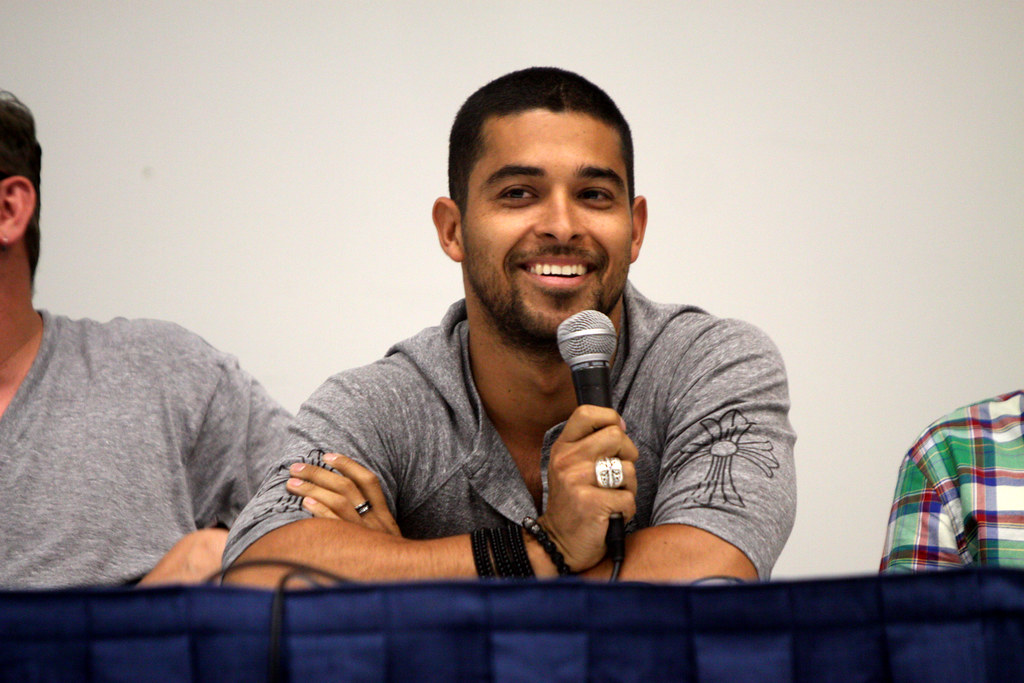
6. Wilmer Valderrama
Wilmer Valderrama, known for his role in “That ’70s Show,” took to “The Howard Stern Show” and quickly learned that oversharing intimate details about past relationships with famous exes can have serious repercussions. His appearance on the notoriously candid radio program proved to be a pivotal and damaging moment for his public image.
During the interview, Valderrama openly shared specific, intimate details about his relationships with several well-known celebrities, including a particularly sensitive claim about Mandy Moore. His revelations were personal and, in some cases, allegedly inaccurate, stirring up significant controversy among his former partners and the public.
The backlash from Moore and others was swift and unequivocal, as she publicly denied his claims. This public disagreement further amplified the negative sentiment surrounding Valderrama’s comments. After this interview, he noticeably faded from the spotlight, struggling to secure major roles for a significant period.
It wasn’t until he joined the cast of “NCIS” much later that Valderrama managed to land another major television role, indicating the long-term impact of his remarks. The episode with Howard Stern serves as a clear example of how discussing sensitive personal details, especially those involving others, can alienate former colleagues and the public, leading to a noticeable career slowdown and a struggle for relevance.
Read more about: When Stardom Met Stripes: 14 Iconic Actresses and Their Unforgettable 70s-90s Mugshots

7. Giuliana Rancic
Giuliana Rancic, a prominent figure in E!’s red carpet coverage and co-host of “Fashion Police,” found herself in a massive controversy during a 2015 episode. While discussing Zendaya’s elegant dreadlocked look at the Oscars, Rancic made an offhand joke that immediately sparked widespread outrage and accusations of racial insensitivity.
Rancic commented that Zendaya’s dreadlocks probably “smelled like patchouli… or weed,” a remark that was quickly and widely condemned as playing into harmful racial stereotypes. Zendaya herself, an emerging voice for social justice, called out the comment directly, stating that there was a “fine line between what is funny and disrespectful.”
The backlash from the public and fellow celebrities was swift and intense, forcing Rancic to issue a public apology, which she did. However, the incident undeniably stuck with her, significantly damaging her reputation and credibility as a fashion commentator. It became a defining moment that altered the course of her career trajectory at E!.
Not long after the controversy, Rancic left E!’s red carpet lineup, a staple of her career, and hasn’t been a regular on major television since. Her situation highlights the critical importance of thoughtful and respectful commentary, especially in the context of pop culture and diverse representation. It’s a powerful reminder that words, even those intended as humor, can carry profound and damaging implications, leading to irreversible career shifts.
Navigating the high-stakes world of celebrity can truly feel like a precarious dance, where every word is analyzed, and a single misstep can send a career spiraling. While the initial fallout from a disastrous interview is often dramatic and immediate, the long-term impact on a star’s public image, professional prospects, and even their personal life can be far more profound and lasting. The ripple effects can reshape how fans perceive them, how the industry casts them, and the very narrative of their careers for years to come. In this second section, we’ll continue our deep dive into more high-profile interviews that led to career-altering controversies, examining the enduring consequences and the often painful lessons learned from these very public missteps.
Read more about: You Won’t Believe These 14 Stars Secretly Welcomed Babies via Surrogate — And Their Stories Are SO Inspiring!

8. Belle Gibson
Belle Gibson was once the darling of the wellness world, bursting onto the scene in 2013 with her popular mobile app, The Whole Pantry, and a string of successful cookbooks. Her brand was built on an incredibly compelling, albeit utterly false, narrative: she claimed to have bravely battled and miraculously cured multiple cancers through healthy living. This inspiring story resonated deeply with countless followers, elevating her to the status of a health guru and a symbol of hope.
However, in 2015, the carefully constructed facade began to crumble as unsettling rumors emerged about the veracity of her cancer claims and her alleged charitable donations. Under immense public pressure, Gibson eventually confessed to *The Australian Women’s Weekly* that she had, in fact, been lying about her illness all along. Her explanation—blaming her deception on her upbringing—did little to quell the outrage; if anything, it only fueled the fury and instantly demolished her once-glowing career.
The nail in the coffin for her public image was arguably her deeply uncomfortable interview on *60 Minutes Australia*, where she famously sidestepped every challenging question and offered bizarre, almost nonsensical explanations for her actions. This public spectacle solidified the complete erosion of trust in her brand and her personal credibility. Her carefully curated image of health and honesty vanished overnight, replaced by a reputation for deceit.
The long-term consequences were severe and unequivocal. Gibson’s career was unequivocally tanked, and she was later fined a hefty $410,000 in 2017 for her deceptions, a stark legal repercussion of her fraudulent claims. Her story remains a powerful cautionary tale about the dangers of building a career on lies, especially in the sensitive realms of health and wellness, demonstrating that public image built on falsehoods can, and often will, come crashing down.
Read more about: From Silver Screen Stars to Public Scrutiny: Unpacking the 15 Most Polarizing Actors in Hollywood History

9. Tom Cruise
The year 2005 proved to be a whirlwind of public relations challenges for Hollywood heavyweight Tom Cruise, starting with his infamous couch-jumping antics on *The Oprah Winfrey Show*. But it was his aggressive and highly controversial appearance on the *Today* program with Matt Lauer that truly solidified a new, often perplexing, public image. During this interview, Cruise launched into an impassioned critique of Brooke Shields for using antidepressants to treat postpartum depression, famously declaring psychiatry a “pseudoscience.”
His stance, deeply rooted in his Scientology beliefs, came across as incredibly patronizing and dismissive, particularly as he combatted Lauer’s attempts to offer a more nuanced perspective. Cruise doubled down on his anti-psychiatry views, refusing to back down and even labeling Lauer “glib.” This confrontational and seemingly erratic performance marked a significant turning point in how the public perceived him, shifting him from a universally adored action star to a figure viewed with a mix of fascination and concern.
The immediate backlash was widespread, with many fans and critics questioning his judgment and the appropriateness of his public pronouncements on such sensitive medical topics. This public relations nightmare had tangible professional consequences; most notably, Paramount Pictures, his studio home for 14 years, cut ties with him in 2006. This was a monumental shift, signaling that even the biggest stars are not immune to the repercussions of their public statements.
While Cruise’s incredible talent and box office power eventually led to a recovery—Paramount later rekindled their relationship, and he even reconciled with Steven Spielberg in 2023 after Spielberg’s denouncement in 2005—the *Today* interview permanently altered his public persona. It serves as a compelling lesson that personal beliefs, when aggressively and insensitively expressed on a public platform, can profoundly impact an enduring celebrity reputation, demonstrating that even a superstar’s carefully curated image can be irrevocably altered.
Read more about: Beyond the Ring: An Exclusive Deep Dive into Floyd Mayweather’s Multi-Million Dollar Automotive Sanctuary
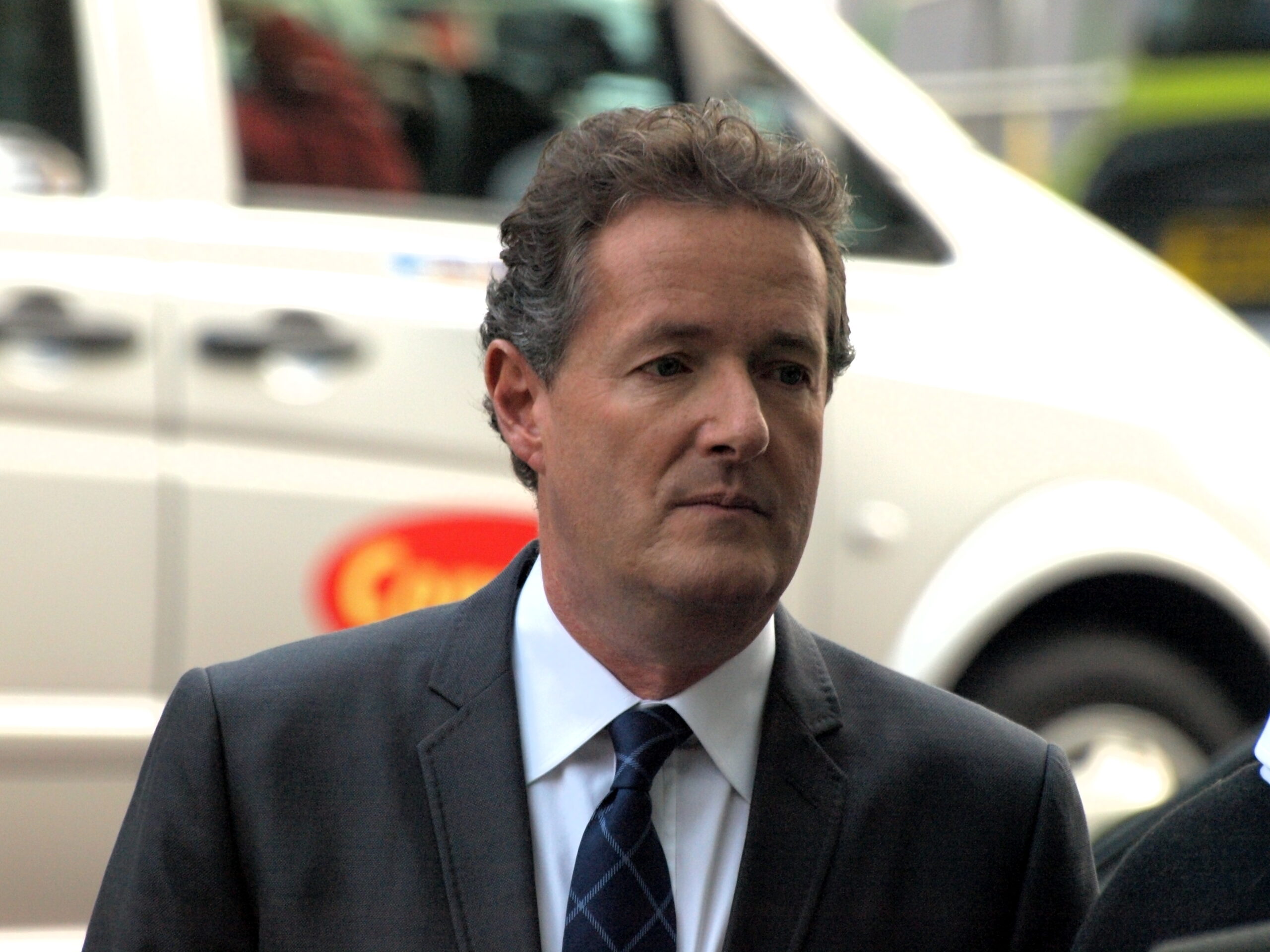
10. Piers Morgan
Piers Morgan’s career on CNN was already on shaky ground by 2014, plagued by dwindling ratings and a noticeable struggle to connect with American audiences. It was during his final days on the network that he hosted comedian Chelsea Handler, an interview that quickly spiraled into a public relations disaster. Handler, with her signature bluntness, utterly dismantled Morgan on air, openly criticizing his “lack of attention” and explicitly calling him a “terrible interviewer.”
Morgan attempted to salvage the situation, trying to shift the blame by claiming a guest needed to be interesting, but Handler swiftly countered, pointing out that it was, in fact, his job to make them so. This deeply embarrassing exchange served as a definitive blow to his already faltering U.S. reputation, solidifying the perception that he was out of touch and unable to perform effectively in a different media landscape. His hopes of truly breaking America were, at that moment, utterly dashed.
With his American venture in shambles, Morgan returned to the U.K., eventually finding a new platform on *Good Morning Britain*. However, his propensity for controversy followed him across the Atlantic. In 2021, he ignited a massive firestorm by launching into an on-air rant about Meghan Markle disclosing her mental health struggles. This outburst led to a heated confrontation with fellow presenter Alex Beresford, culminating in Morgan dramatically walking off set and later resigning from the show.
His struggles for relevance since leaving *Good Morning Britain* highlight the long-term impact of these televised incidents. Morgan’s career is a testament to how inflammatory rhetoric and an inability to adapt to changing public sensitivities, even for a seasoned media personality, can lead to repeated professional setbacks and a persistent struggle to maintain a prominent and widely accepted public image. It’s a clear lesson that even strong personalities need to know when to temper their views.
Read more about: A Legacy Etched in Blues: Unpacking Janis Joplin’s Final Chapters and the Unfolding of a Tragic End
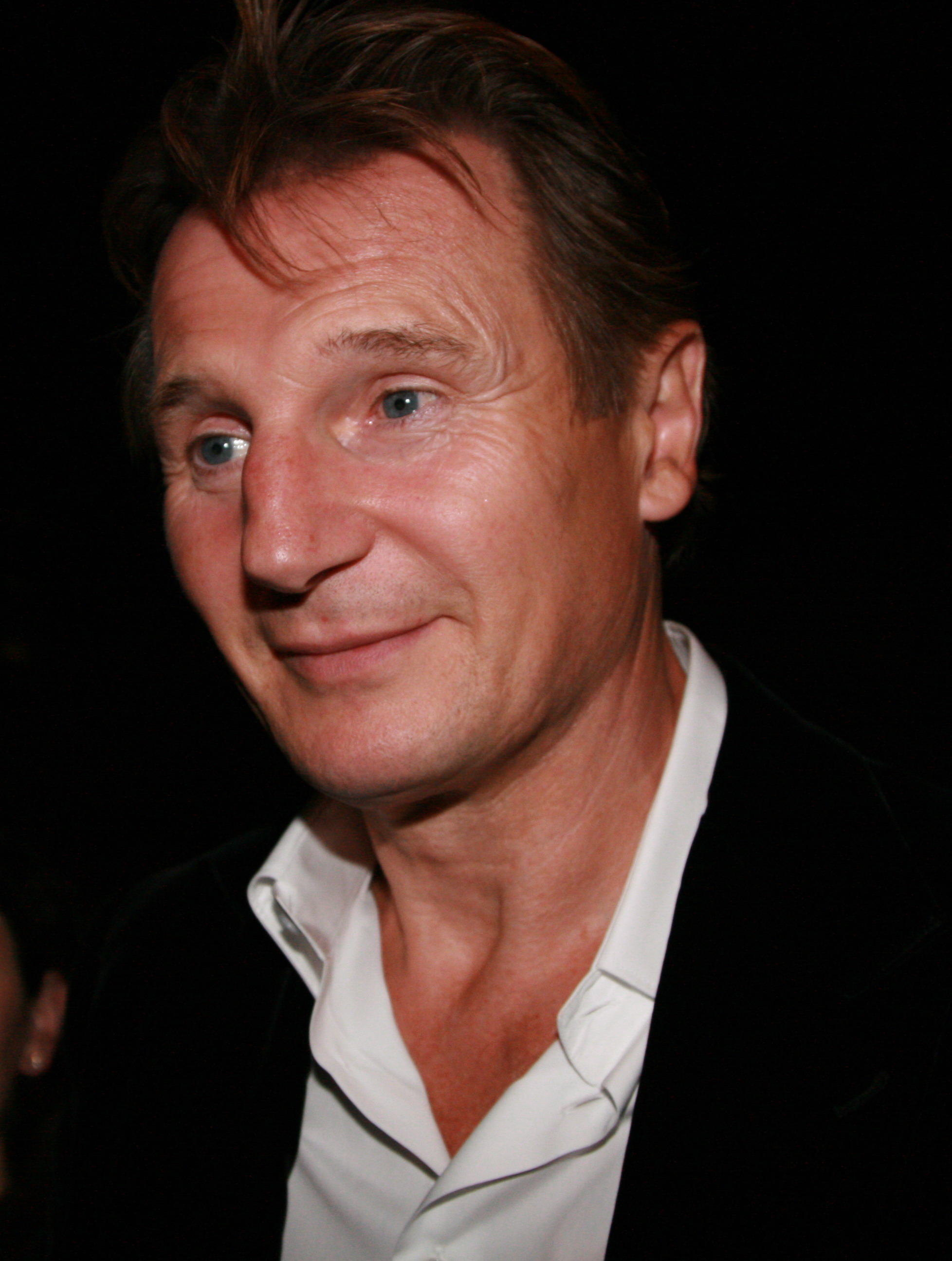
11. Liam Neeson
Social media erupted in a flurry of comments—both in fierce defense and scathing condemnation—following a particularly candid interview with Irish actor Liam Neeson. While promoting one of his films, Neeson courageously, or perhaps unwisely, opened up about a deeply personal and disturbing period from his past. He recounted the horrific ual assault of a close female friend by a Black man and, in a shocking admission, described his subsequent vengeful impulse to walk the streets “looking for trouble,” hoping to kill “some Black bastard.”
He went on to explain that this dark period of anger and racial animosity eventually subsided, and he came to realize the profound wrongness of his thoughts and actions, feeling deeply ashamed. The sheer honesty of his confession sparked an immediate and intense public debate. Many branded him a racist, recoiling at the raw, unfiltered glimpse into his past rage. Others, however, including prominent figures like Trevor Noah and Whoopi Goldberg, defended his brutal honesty, arguing that his admission of past wrongdoing and subsequent shame offered a valuable moment for discussion on racism and forgiveness.
The interview didn’t necessarily “destroy” Neeson’s career in the traditional sense; he continued to work and star in major films. However, it undeniably put a significant “fork in the road” of his likeability, forever altering how a segment of the public viewed him. His public image, once largely untainted, became more complex and controversial, revealing a layer of personal history that many found deeply troubling, regardless of his subsequent remorse.
Neeson’s experience underscores the double-edged sword of celebrity candor. While honesty can sometimes foster deeper connection, it can also expose uncomfortable truths that profoundly challenge a public figure’s carefully constructed image. The long-term impact on Neeson’s public perception was less about lost roles and more about a permanent shift in how his character and personal history were understood by a global audience, demonstrating that even admissions of remorse can leave lasting scars on one’s public standing.
Read more about: The Unbearable Weight of Regret: Deconstructing James Cameron’s Singular Apology for a Pivotal ‘Titanic’ Scene
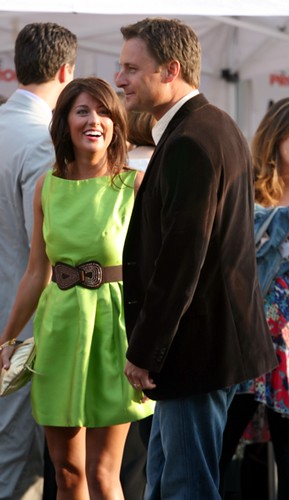
12. Chris Harrison
For nearly two decades, Chris Harrison was an undeniable fixture of American television, the ever-soothing host presiding over the dramatic rose ceremonies and heart-wrenching proposals of *The Bachelor* and its various spin-offs. He was the calm, comforting face of a massively popular reality TV empire, an icon in his own right. But that meticulously cultivated image shattered in 2021 during an interview with Rachel Lindsay, a former *Bachelorette* contestant, for *Extra*. This interview proved to be the ultimate career unraveling.
The controversy began when Harrison attempted to defend contestant Rachael Kirkconnell, whose past photos attending a plantation-themed party and liking racist social media posts had surfaced, causing widespread outrage. In his defense, Harrison bizarrely dismissed the criticism as an act by the “woke police” and suggested that people shouldn’t be so quick to judge historical actions by modern standards. His remarks, utterly lacking in sensitivity and understanding, were immediately and widely condemned. It was an absolutely jarring moment for many, especially coming from such a public figure.
The backlash was swift, furious, and uncompromising. Viewers, contestants, and media outlets alike called out Harrison’s tone-deaf stance. Rachel Lindsay, disgusted by his comments, eventually quit her role within the franchise. The network moved quickly, first suspending Harrison, then ultimately firing him from *The Bachelor* franchise after 19 years. His seemingly unassailable position vanished overnight, demonstrating how quickly a beloved host can fall from grace when perceived as insensitive to crucial social issues.
Harrison’s experience highlights the seismic shift in public expectations for media personalities, especially concerning issues of diversity and social justice. The long-term impact has been a struggle for him to regain his footing in mainstream television, with his iconic role now filled by others. His career, once a symbol of reality TV success, serves as a powerful reminder that an interview, particularly one mishandled with such a lack of awareness, can irrevocably alter professional opportunities and public perception, leaving a lasting legacy of controversy.
Read more about: 15 Smart Home Upgrades That Significantly Boost Your Property’s Resale Value
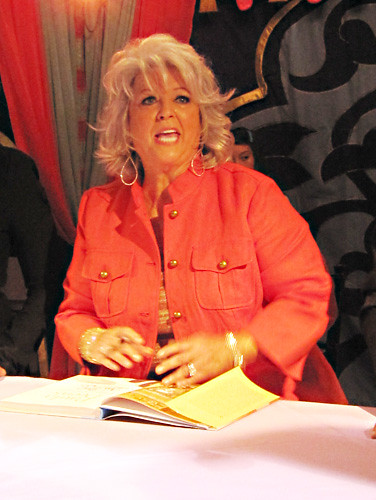
13. Paula Deen
Paula Deen, with her charming Southern drawl and indulgent, butter-laden recipes, had long cultivated a public persona as America’s beloved cooking matriarch through shows like *Paula’s Best Dishes*. Her image was one of warmth, kindness, and delicious Southern hospitality. However, this carefully crafted facade was dramatically shattered in 2013 when a lawsuit brought against her exposed a shocking truth: during a deposition, Deen admitted to having used racial slurs multiple times in the past and even considering a “plantation-themed” wedding. Yikes.
As the controversy exploded, Deen appeared on the *Today* show to address the fallout in an interview that can only be described as, well, *weird*. Instead of offering a direct, heartfelt apology that might have begun to quell the public’s anger, Deen presented herself as a victim of slander. She notably stated that she “wouldn’t have fired herself” for the incident and conspicuously referred back to a pre-recorded apology video, rather than delivering a genuine, unscripted moment of contrition.
This perceived lack of genuine remorse and her victim narrative only intensified the public backlash. The consequences were immediate and severe: major companies, including the Food Network, Smithfield Foods, Walmart, and Caesars Entertainment, rapidly cut ties with the celebrity chef, leading to a massive loss of endorsement deals and her television show. Her once-thriving culinary empire suffered an irreversible blow, and her public image was permanently tainted, changing from a beloved figure to one associated with racial insensitivity.
Deen’s dramatic fall from grace illustrates the critical importance of authentic accountability in a crisis. The long-term impact on her career saw her fade into relative obscurity, demonstrating that in an era of heightened social awareness, a celebrity’s past remarks and a poorly handled public apology can devastate professional opportunities and permanently dismantle a carefully built public image, proving that words, and the lack thereof, carry immense weight.
Read more about: Beyond the Headlines: Unpacking the Most Shocking Public Meltdowns That Forced A-List Celebrities to Take a Hiatus
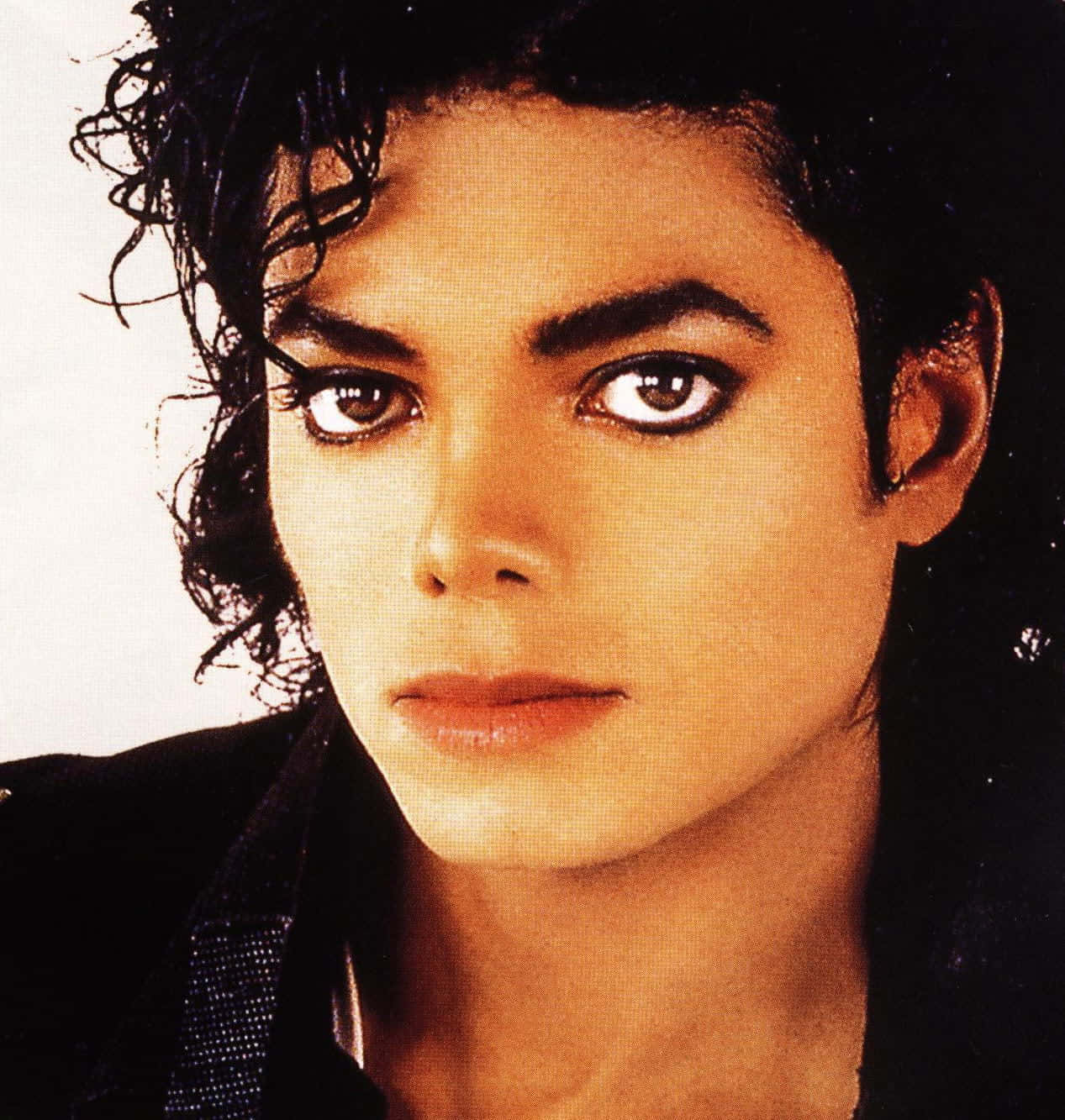
14. Michael Jackson
In 2003, the world tuned in to *Living with Michael Jackson*, a year-long documentary by Martin Bashir that promised an intimate look at the enigmatic King of Pop. What viewers got, however, was a series of revelations that sent shockwaves globally, forever altering the public’s perception of the music icon. While Jackson spoke candidly about the abuse he suffered at his father’s hands, a deeply uncomfortable admission overshadowed everything else: his claim of having “sleepovers with children in his bedroom.”
Despite his emphatic insistence that “nothing untoward happened” during these sleepovers, the mere admission ignited a massive public backlash and fueled intense scrutiny. It wasn’t just a misstep; it was a deeply disturbing detail that, for many, confirmed lingering suspicions and anxieties surrounding his personal life. The interview became a pivotal piece of evidence that brought to life the infamous People v. Jackson trial in 2005, putting his entire life under a microscopic lens.
While Michael Jackson was ultimately acquitted on all counts in 2005, the damage to his reputation was immediate, profound, and utterly permanent. The trial, heavily influenced by the documentary’s revelations, solidified a narrative of controversy and suspicion that he would never fully shake. His public image, once defined by unparalleled musical genius and a childlike innocence, became irrevocably linked to accusations of misconduct, eclipsing his artistic achievements for many.
The long-term impact on his career and personal life was devastating. Beyond the legal battles, Jackson faced immense financial strain, battling bankruptcy from other lawsuits and a dramatic decline in public goodwill, despite his continued artistic efforts. His passing in 2009 left a complex legacy, forever shaped by the specter of that interview and the subsequent trial. It stands as a stark and tragic reminder of how deeply a single, ill-fated interview can intertwine with a celebrity’s destiny, leaving a legacy of controversy that endures far beyond their lifetime.
Read more about: Unscripted Twists: 11 Movie Leaks That Forced Major Plot Changes Before Filming
Well, there you have it! Another seven jaw-dropping interviews that prove even the biggest stars aren’t immune to the microphone’s perilous power. From wellness gurus spinning tales to pop icons making unsettling confessions and beloved hosts losing their cool, these stories are a wild ride through the do’s and, more often, don’ts of celebrity public speaking. It’s clear that in the lightning-fast world of pop culture, a few misplaced words can truly flip the script on a career, showing just how much impact those candid moments really have. So, what do you think? Which of these celebrity interview blunders surprised you the most, and what lessons do you think they teach us about fame and transparency today? Share your thoughts below – we’d love to hear from you!


